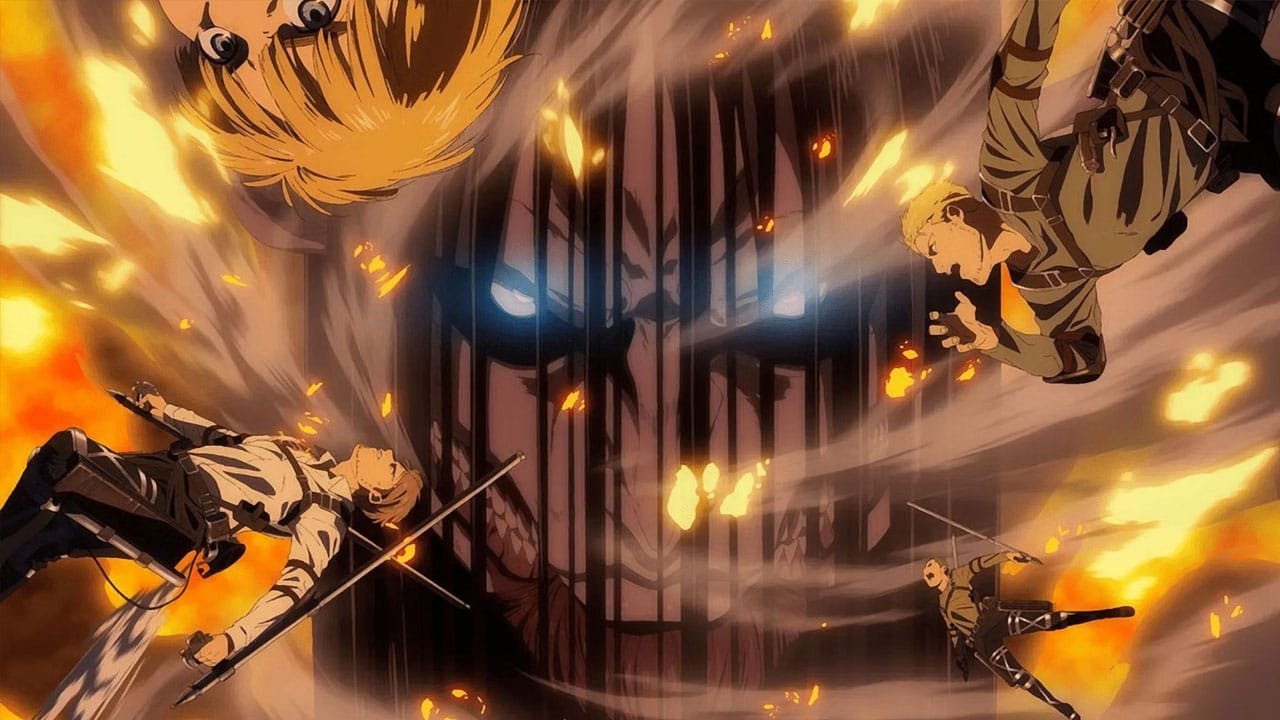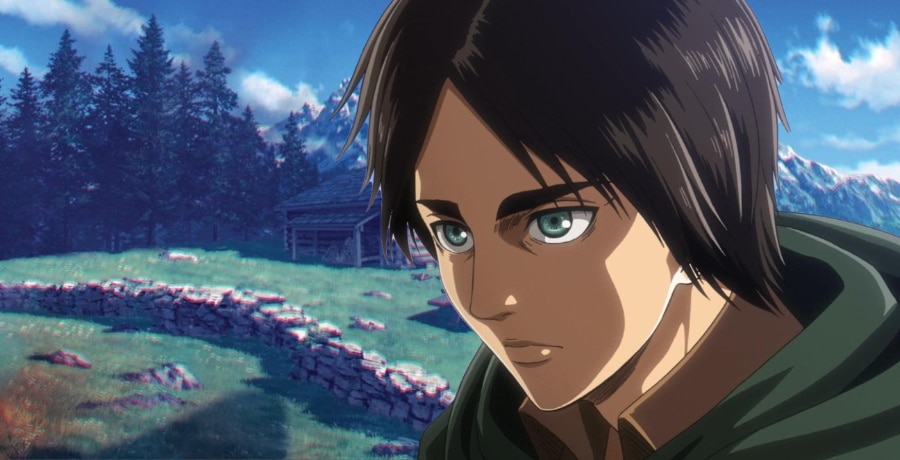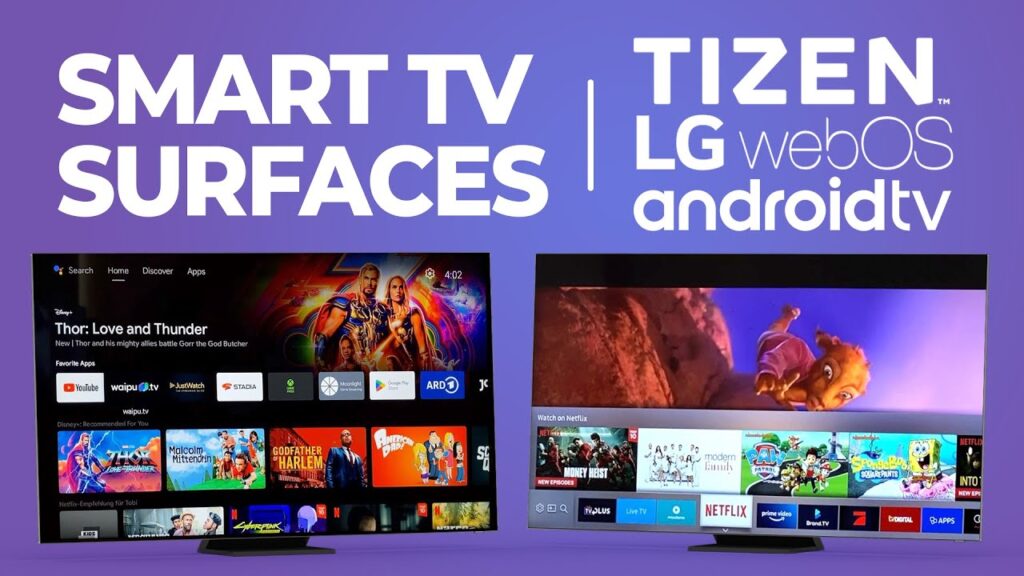
Whenever asked about my all-time favorite anime, Attack on Titan inevitably claims a place on my top-rated list. Undoubtedly, it stands among the greatest anime ever created, etched in the memory of its fans. Such acclaim signifies the pinnacle of achievement, a status reaffirmed by the recent conclusion of Attack on Titan. What are your thoughts on its ending?
Attack on Titan’s finale was first unveiled in manga Chapter 139 in 2021, sparking considerable excitement among fans. Subsequently, fans eagerly awaited the anime’s conclusion to ascertain any alterations. Having thoroughly examined both the manga and anime endings, I’ll delve into the enigmatic conclusion of Attack on Titan in this analysis.
Spoiler Alert: This article contains significant spoilers for the conclusion of Attack on Titan. It’s highly recommended to have read the manga (up to chapter 139) or watched the entire anime to preserve your intended experience.
How Does Attack on Titan End?
We’ve dissected the conclusion of Attack on Titan into several sections to provide a thorough understanding of each pivotal moment. Here they are:
Mikasa’s Fate
Prior to this climax, Mikasa, aided by her kin Levi and friend Armin, infiltrated the Founding Titan. Earlier, a centipede/worm, the source of all life, transformed the remaining humans into Titans, plunging the world into chaos. Amidst this turmoil, Mikasa experienced a surreal moment with Eren.
Understanding her mission, Mikasa swiftly executed it by decapitating Eren. In a poignant farewell, she shared with him her first and final kiss. This heart-wrenching moment segued into an extensive dialogue between Eren and Armin, finally unraveling the mysteries that shrouded Attack on Titan.
Eren’s Dialogue with Armin
The final moments of this saga are epic. It began with Eren having a significant conversation with his best friend, Armin Arlelt, in the ‘Path’. He discussed recent events, including the rumbling.
Eren apologizes to Armin for their last meeting, recalling Armin’s words, “Those who can’t abandon anything, can’t change anything”. Eren’s choice to abandon his comrades aims to change the future for his loved ones. While not the righteous path to freedom he desires, it’s a necessary sacrifice for a secure future. A small price for salvation, isn’t it?
Eren highlights his rationale for choosing the Rumbling, citing the merciless elimination of over 80% of the world’s population. Consequently, the remaining world factions lack the capacity for sustained retaliation or discrimination against Paradis.
Eren anticipates that Armin, Mikasa, and their comrades will be hailed as saviors for averting humanity’s extinction, even as he assumes the mantle of villainy. This parallels the post-Great Titan War perception of the Tybur family and evokes reminiscence of the denouement of another acclaimed anime, “Code Geass”.
Eren disclosed crucial information regarding Ymir Fritz, who remained devoted to King Fritz posthumously due to her enduring love for him. It remains ambiguous whether this loyalty stemmed from Stockholm syndrome or genuine affection, as even Eren initially questioned her motives, later confirming her unwavering devotion solely out of love.
The conversation takes a chilling turn when Eren admits to commanding Dina Fritz, in her Titan form, to consume his biological mother, Carla Yeager. This action, he understood, was the pivotal moment in his life, setting off a chain of events that shaped history.
Next, he began to have a breakdown and confessed his true feelings for Mikasa to Armin. This confession revealed Eren’s authentic self beneath the facade he had maintained. He admitted his desire to live with Mikasa and their friends, acknowledging the unlikelihood of it. The ability to perceive the future and past concurrently took a heavy toll on Eren’s mind.
He later confessed to Armin that he didn’t understand his actions fully but felt compelled to carry them out. Armin observed that they both bear the weight of these consequences, indicating it’s not solely Eren’s burden.
He informed Armin he’d temporarily erase this conversation from memory, promising recollection later. In his final moments, Eren pledged extreme measures to ensure humanity’s salvation, particularly for his friends.
Did Eren Die in Attack on Titan’s End?
Eren’s demise at Mikasa’s hands was an immutable fate, as he disclosed to Armin. Contrary to belief, he wasn’t destined to liberate Ymir Fritz; instead, he revealed Mikasa as the awaited liberator from love’s shackles.
We wondered why Mikasa, like Eren, was chosen by Ymir without any explanation. Historical events unfolded as necessary for Mikasa to ultimately emancipate Ymir.
As evidenced by this dialogue, Eren’s demise was inevitable, foreseen by himself. Beheading Eren directly granted Ymir her liberty, leading to the disappearance of Titan powers from this realm. Those endowed with Titan powers transformed into Titans, only to be reverted to human form as the connection between Ymir, Eren, and the primordial worm—the source of all life—was severed.
Mikasa shares a final conversation with Ymir, marking its importance and bidding goodbye. Subsequently, Mikasa, Armin, and others mourn their friend’s death, desiring to give him a proper burial. Thus, Eren indeed passes away in the arms of his lover, a tragic yet poetic demise.

Outcome of the Battle of Heaven and Earth
Following the cessation of the rumbling, Mikasa and Eren’s companions inter his remains in his cherished spot. It’s beneath a tree where Eren used to nap as a child. Three years post the climactic war, termed the “Battle of Heaven and Earth,” survivors (including Reiner, Jean, Conney, Pieck, etc.) are appointed as ambassadors.
Their primary goal was to initiate peace negotiations between Paradis and other nations. Meanwhile, Historia confirmed the remaining Yeagerists formed another military organization to ensure Paradis’ safety and defend against external threats.
Years passed, and Mikasa continued to visit Eren’s grave, tearfully expressing her longing to see him again. During one visit, a bird flew by and gently adjusted the scarf slipping off Mikasa’s neck, creating a poignant moment.
If you’re a dedicated fan like me, you recall Eren wrapping the scarf around Mikasa when he gave it to her. The same gesture occurred in the story’s final moments, with Mikasa acknowledging it by thanking Eren again. The Bird is considered a reincarnation of Eren, seen near Armin before this.
Eren’s dream of a titan-free world for his friends and Paradis was momentarily realized. Saying goodbye to our beloved character Eren, alongside Mikasa, was emotionally overwhelming. So long, Eren!
A Fresh Start Beyond the End
Until now, the ending appeared as the peaceful, bittersweet conclusion we desired (aside from Eren’s tragic fate). However, a sudden change occurred when Hajime Isayama opted to extend the final chapter. This revealed the future of Paradis Island, global events, and Mikasa’s final moments.
Mikasa persistently visited Eren’s grave annually with her new family. This tradition endured into her old age, as confirmed by a specific panel depicting her death and burial alongside Eren’s scarf. Over subsequent years, Paradis Island rapidly evolved into a futuristic civilization.
Eren’s burial tree grew larger as events unfolded. After a prolonged period, war erupted again in Paradis, turning Shiganshina into a barren wasteland. This outcome was inevitable for the land of Titans.
Reflecting on Netflix’s Dark series, “The cycle must repeat, just as always it has.” Human desires for power, fame, and glory perpetuate wars. Isayama’s narrative emphasizes the cyclical nature of conflict.
The war resulted in a forest reclaiming the lands, engulfing Eren’s burial tree. In this apocalyptic world, a child and his dog discover the tree, reminiscent of Ymir Fritz’s discovery. They enter the tree, hinting at history repeating itself, potentially leading to the rediscovery of Titan powers and ensuing conflicts.
Divergence Between AOT Anime and Manga Endings
Following the manga’s conclusion, debates arose over whether the anime required a distinct ending from the original manga due to fan dissatisfaction. Even before the final episode aired, Isayama was reported to have assisted in altering the AOT ending. However, the anime’s ending ultimately remained faithful to the Attack on Titan manga.
Many misinterpreted Isayama’s mention of redrawing the last scene’s draft. Additional dialogue or scenes might have been included to bolster the ending’s justification and enhance its emotional impact on fans. Thus, it’s now confirmed that the Attack on Titan anime’s ending mirrors that of the manga.
One notable difference lies in the portrayal of civilization: in the manga, the paradise civilization progresses to a modern world, while the anime depicts a more advanced and futuristic society. Additionally, in the manga, the child and the dog merely discover the tree, whereas in the anime, they explore it further. Nevertheless, these alterations are minor and contribute to the creative process.
Insights on the Conclusion of Attack on Titan by Beebom
Having read the manga’s conclusion upon its release two years ago, we admired Iseyama’s handling of Eren’s final moments. Watching the anime’s finale now, we are astounded by Iseyama’s brilliance. He has crafted a story of enigmatic depth, replete with mind-bending twists, intense emotions, unpredictable drama, and extraordinary battle sequences.
After reviewing the extended finale, this is a fitting conclusion to the magnum opus story that captivated us for over a decade, providing a once-in-a-lifetime experience.
This realistic ending adds a humane touch to the story. While not perfect, it remains the best option, even though it elicited mixed feelings among some fans.
The ending divided opinions, deemed disappointing by some and fitting by others. Yet, it fails to tarnish the series’ GOAT status, exemplifying perfection in anime/manga. Ultimately, viewpoints hinge on personal preference and perspective. Our aim is to enhance your understanding of the true ending of Attack of Titan.
The finale deeply moved us, allowing fans to grieve for the comrades lost throughout the story (Sasha 😭). However, the hint of history repeating itself was unexpected. It’s not the Titans or any other creature disrupting global peace, but always humans hungry for more power and absolute control, turning this good place into a battleground to show superiority and stroke their ego. This theme is subtly portrayed in Isayama’s manga.
Overall, we enjoyed this epic conclusion to the legendary story and bid farewell to unforgettable favorite characters. For one last time, Shinzo wo Sasageyo! What are your thoughts on this ending? Share in the comments below.

Pritam Chopra is a seasoned IT professional and a passionate blogger hailing from the dynamic realm of technology. With an insatiable curiosity for all things tech-related, Pritam has dedicated himself to exploring and unraveling the intricacies of the digital world.



